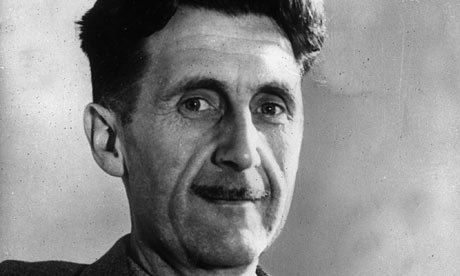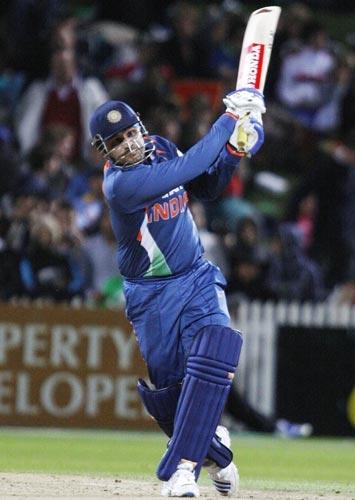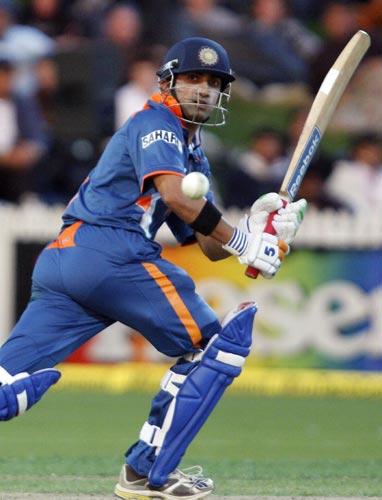A flashback and the review of my humble book-collection
Reading has been my passion, if I might not be exaggerating, since I learnt how to read. Moreover before I learnt to read, I remember insisting my sister to read stories for me from ‘Chandan’ , 'Chandamama' or fairy tales kind of stuff, to much of her disappointment for she never liked reading anything outside her course books. My parents saw this zeal in me and introduced me to ‘Tinkle’. Growing up with Supandi, Shikari Shambhu, Tantri the Mantri, et al was great fun. Uncle Pai was a true hero for me. Alongside this weekly, my father also used to get S.Chand’s European Classics abridged versions for me from the Second Hand bookstalls. So I can proudly claim to have read Shakespeare, Mark Twain, Charles Dickens and others extensively though in petite abridged form of course. This was definitely a great learning experience. Lives of 'Tom Sawyer' and 'David Copperfield' fascinated me, I sympathised with 'Huckleberry Finn' and 'Oliver Twist', and got saddened when 'Don Quixote' and 'Hamlet' died. Sometimes, I ventured out on the ‘Journey to the Centre of the Earth’ and at other times I had to be content with going ‘Around the World in Eighty Days’. Well, I also hunted down the treasures of ‘King Solomon’s Mines’ and the ‘Treasure Island’ with quite an ease and a lot of fun.
Enid Blyton and her children stories, which I read in original form, were too mesmerizing. She had the ability to take you into that world of joy and adventure from where you never want to return. Her ‘Children of Cherry Tree Farm’ trilogy is definitely one of the best collections of children books.
Meanwhile as I was moving close to secondary school, I got another source for quenching my thirst in the form of my School library. Here, eventually my interest grew in the suspense and thrill genre when I lay my hands on Hardy Boys. I identified myself with Chet Morton, the closest buddy of the brothers and hence was always part of their adventure in the world of my imaginations. I remember returning home with the newly issued ‘Hardy boys’ novel having already read a chapter or two in my bus ride back home, gulping up the lunch and getting back into the reading mode till my mother pushed me out of the house, to play in the evening. Till, I got through my Matriculation, I had devoured dozens of Hardy Boys, Nancy Drew, The Famous Five (Enid Blyton), Alfred Hitchcock’s ‘The Three Investigators’ et al.
My years in Senior Secondary never gave me a chance to develop my reading skills further, for in those two years, I was stuck in fat and ugly books of Physics, Chemistry and Mathematics. Moreover, during the first year in the engineering college, I was so busy enjoying the new found freedom that I lost touch with that joy I used to have with Frank and Joe
Hardys and others.

It was only when I brought home Hitler’s
'Mein Kampf' one day; out of curiosity of knowing the tyrant better, I finally had a reunion with my old passion. And with this I also had a major shift in taste from Fiction to Non-fiction. The book consists of two volumes (I have read only the first) written by Adolf Hitler in captivity during early 1920’s. It gives you a first hand experience of what was going through the mind of
fuehrer which made him the man he was. There are parts where you are amazed at his intelligence and analysis through which he can convince you on things which are
abhorable. No doubt, the book served as his propagandist tool in brainwashing thousands of Germans and arming them with guns pointing at their compatriots. However, if it were not for this autobiography, it would have been difficult to know him that well. I don’t think that a biography could draw such a picture, for it would have been totally subjective depending upon the author’s inclination.
So a question arises that what source should one refer to, in order to know a person better, a biography or an autobiography. As far as the former is concerned, I have read those of Indira Gandhi and Jayaprakash Narayan. Both, ‘Indira Gandhi’ and ‘Unfinished Revolution’ have been written by their close associates Pupul Jayakar and Ajit Bhattacharjea respectively. Moreover, I purchased both of them together. I got interested in knowing about these two antagonists of history on watching ‘Biography of Nehru family’ on ‘History Channel’ some years backs. In it there was reference to the Emergency period which made me yearn to know more. For me the rule of Indira Gandhi was quite foggy for all the developments like Emergency and Operation Blue Star tended to converge as I could not distinguish between them. After having read the two books, I was saner and I saw how, even a democracy can turn into autocracy thanks to the strong will of a person and her son, and the poor will of her sycophants. It was a disturbing but informative account. Pupul Jayakar though a close friend of Indira Gandhi is very objective in her narrative. On the other hand Ajit Bhattacharjea sticks to a positive narrative of his lead protagonist. Hence, it seems there are no dark shaded in JP’s life. That thing apart, life of JP is indeed inspiring. It is quite revealing that this true Gandhian had also taken to violent means to attain independence, earlier in his life. Though today, very few youngsters may know about him, but his legacy remains in the vast breed of politicians who nurtured under him. It has been aptly commented about him that he was the best Prime Minister that India could not have.
Coming back to the question raised earlier, I believe it depends upon the reader what he/she wants to know about the person. If you want to know all the facts about his/her life and are content with accepting his/her personality as drawn by the author, you may go for the biography. However, if you have the zeal to draw that picture yourself, only an autobiography with suffice. The difference may seem simple: In order to draw someone’s portrait, will you like to depend upon a portrait drawn by someone else or will you like to draw it with that person posing in front of you. However, it is not that simple. When you have to draw the portrait of someone’s personality and character, you don’t just depend upon the visible features. There is a lot that’s buried inside that person. Hence, a biographer close to him/her may throw light upon those parts of his/her personality which he/she may decide to conceal while writing an autobiography. So the answer is still unanswered and I better keep it like that.
Moving onto the other autobiographies, my prized possession is ‘My Life’ by Bill Clinton. It is an encyclopedia for a person interested in knowing about the political, economic and social aspects of contemporary American history. It was after reading it that I developed an interest in American political process and fondly followed this year’s Presidential election. This baby-boomer takes us on a journey through his life from 1946 to 2005, always keeping a balance between his personal life and the developments taking around him in both domestic and international arena. He has talked of all the American Presidents from Truman to George W. Bush and the wars fought by them, major legislations brought by them and the role they played in shaping post-World War II America. Bill talks extensively about his life in administration, be it as an Attorney General, Governor or the President. He doesn’t hesitate to introduce Monica Lewinsky too though I understand this account cannot be cent percent true.
Nelson Mandela’s ‘Long Walk to Freedom’ is another gem of a book which spans the story of whole 20th century South Africa. However, it keeps to the main theme without discussing much about other developments like freedom struggles of other nations in Africa or Asia. Mandela draws a fine picture of his life from his early childhood to being elected as South Africa’s first black President. We see the dark realities of apartheid and the various means employed by those fighting for the freedom from this life of indignity.
Moving back home, Jawaharlal Nehru’s ‘An Autobiography’, which is still to be completed by me, is a testimony to his command on English language. It was also written in captivity in early 1930’s. The best part of the book is the critique of Mahatma Gandhi done by him. Though highly fond of Mahatma, he did not hesitate from questioning his intentions at times, and putting forward his counter view. The book also gives a vivid account of the life of Motilal Nehru, so much so that, it can be regarded as his biography too.
Another Autobiography-cum-Biography in my collection is ‘The Kalam Effect- My years with the President’, which happens to be the latest entrant. As the name suggests it’s an account of A.P.J. Abdul Kalam’s Presidentship as given by his Secretary, P.M. Nair. The book is petite and presents some unique aspects of Kalam’s personality. There is reference to some historical moments and their real stories behind the scene. Nair sticks to his job even while writing this book as he maintains an element of anonymity and neutrality, the true virtues of a civil servant. He doesn’t refrain from criticizing Kalam for his unpunctuality too.
Moving away from these personality based books to other non-fiction, two books by Indian diplomats of high reputation adorn my collection too. ‘India’s Foreign Policy’ by late J.N.Dixit is a must read for an aspiring civil servant. While the initial chapters take us through the phases of India’s foreign policy from 1947 to 2003 in a chronological manner, the later part consist of issue-specific chapters. Of these the one on Kashmir problem deserves a special mention. The way the author has described the Kargil War from the perspective of both the Indian and the Pakistan establishment is commendable. So is the picture drawn of General Pervez Musharraf and his miscalculations in the war. There are a lot of repetitions throughout the book, which is acknowledged by the author in the introduction itself. This prevents the readers to turn pages to get the facts right, hence saving time and cementing them too. Analyses are brilliant and done point wise as expected by a diplomat of his caliber.
Shashi Tharoor’s ‘India: From Midnight to Millennium’ is an essay-type account of the evolving India from 1947 to 1997 which also gives glimpses of the author’s life. As most of his articles in the columns of ‘The Sunday Times’, the central theme of the book is also taken from Swami Vivekanand’s famous speech in Chicago which talked about the India’s vast diversity but tolerance to all such diversities. Reading his columns after reading this book seemed quite repetitive. However, leaving this fact aside, the book is a testimony to the diplomat's love for his nation and firm belief in its principles.
While these two books talk of India after 1947, one of the best sources to know the India of British times is ‘India’s struggle for independence’ by the eminent historian Bipin Chandra and his team of associates from J.N.U. This book not only presents the facts regarding India’s freedom struggle from 1857 till 1947 but also analysis the major trends during this period. For example, three chapters dedicated to rise of communalism in India are worth reading. The book is quite exhaustive; a great source to know the personalities and the events that shaped the freedom struggle, and also breaks many myths of the time. For example, two chapters dedicated to the formation of Indian National Congress, breaking the myth behind ‘safety valve theory’ are intriguing and highly commendable.
I’ve talked of Indira Gandhi and her reign earlier. A very important part relates to the Operation Blue Star. Visiting Amritsar last year, I noticed the portrait of Jarnail Singh Bhindranwale adoring the museum inside the Golden Temple complex and his posters, portraying him as a martyr, outside the Complex. Until now, I had only heard about him in negative, and all this portrayal of positivity around him made me anxious to know more. This made me pick ‘My Bleeding Punjab’ by one of India’s most prolific writer Khushwant Singh, at a book shop outside the Temple. It is an objective account of developments which took place in Punjab since the British rule in 20th century, through independence and green revolution till the growth of tensions, the Operation Blue Star and the beginning of terrorism later in the century. If at any time subjectivity creeps in, it only enriches the account and by no means makes it unpalatable. If grievances of some sections of the Sikh community with regards to the Delhi pogrom post-Indira Gandhi assassination are totally justified, their making a martyr out of Bhindranwale is totally preposterous. I am confident that my enumerable Sikh friends will agree with me. As for Indira Gandhi, she reaped what she sowed. I hope that the culprits behind the Delhi crime are brought to justice before a generation of descendants of those who got killed in 1984 perishes. Sadly that is how, our politics works and that is how our judicial system crawls.
Despite developing this taste for non-fiction, two authors pulled me back to Fiction during this time. These are Dan Brown and Chetan Bhagat. Chetan is lucky for I’ve taken his name in the same league as Brown for while the latter is a true example of consistency, the former has lost his momentum. Though, the first novel that I read of Dan Brown, as many others was ‘Da Vinci Code’, the one I like the most is ‘Angels and Demons’. While Deception Point is at par with the former, his first novel ‘The Digital Fortress’ could not impress me. In total contradiction, Chetan Bhagat’s first novel, ‘Five Point Someone’ was his masterpiece. The way he plays with the words in the novel is laudable. However, his next two novels failed to make a mark. I read ‘One night @ the call centre’ in one night only but got so disinterested while reading the latest ‘The three mistakes of my life’ that it took many days to complete it. Indeed the novel is also a big mistake of Chetan’s life and if he doesn’t mend his ways and skills, he’ll perish in oblivion. Coming back to Dan Brown, he has the way to merge suspense and thrill with a lot of important and interesting information. World may have realized the existence of CERN for the first time during ‘Large Hadron Collider Experiment’ in 2008 but the readers of ‘Angels and Demons’ know about it since many years. That’s just one example among enumerable. This mix of fiction with non-fiction makes his novels very enriching. All the Brown fans have been waiting impatiently for his next novel. Let’s hope it comes out soon.
I may have preserved my small non-fiction collection very fondly as evident in the picture, but get clumsy when it comes to non-fiction. While most of the earlier collection has been distributed among younger cousins or got misplaced somehow, even the Dan Browns and Chetan Bhagats are adorning someone else’s shelves. I believe my copy of ‘Da Vinci Code’ alone has been read by half a dozen people. That’s definitely a noble cause to work for, spreading the message and the material for reading good and healthy to keep your grey cells active.
Image Courtesy
Self-Photographed (original)
















